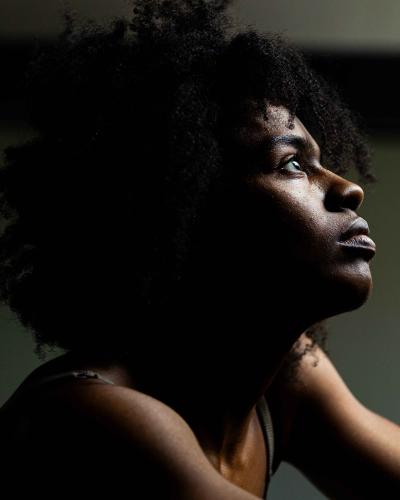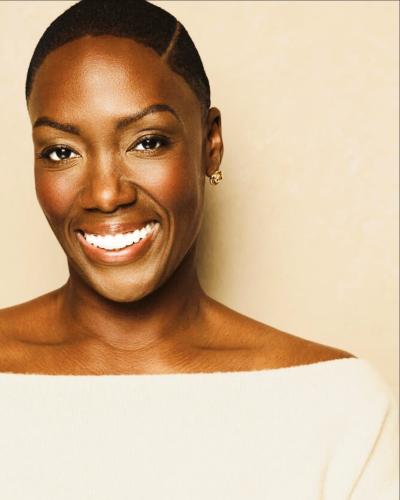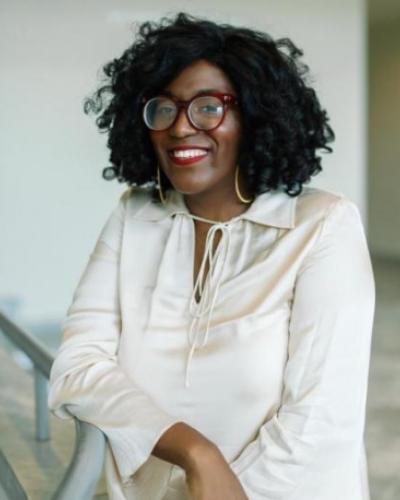In this episode, Chris and Leah met with actor, director, and senior psychology and PMA major Fannie Massarsky to discuss her senior thesis and upcoming production of Aaron Posner’s Stupid F##king Bird.
Click HERE to see more episodes.
Transcript
Chris Christensen 0:11
Hello, I'm Christopher Christensen. Welcome to Episode 54 of the PMA Podcast. In this episode, Leah and I met with actor, director, and senior psychology and PMA major Fannie Massarsky to discuss her senior thesis and upcoming production of Aaron Posner’s Stupid Effing Bird. Here we are. Back in the small studio. I don't know why I always start out with that. Seems like a tagline or something.
Leah Ingalls 0:37
Maybe it is.
Chris Christensen 0:38
I think it is. Leah. How are you this morning?
Leah Ingalls 0:41
I'm doing well. How are you, Chris?
Chris Christensen 0:42
I'm okay. I almost overslept my alarm. Because mice kept me awake throughout the evening. How about you?
Leah Ingalls 0:50
I did oversleep my alarm.
Chris Christensen 0:51
You overslept your alarm?
Leah Ingalls 0:52
Yes, I did.
Chris Christensen 0:53
All right. You got some good sleep though, right?
Leah Ingalls 0:55
I suppose so, yes.
Chris Christensen 0:57
Okay, very good. Well, I know somebody who's not getting a lot of sleep these days. And she happens to be sitting in the podcast studio with us today. Fannie Massarsky.
Fannie Massarsky 1:05
Hello.
Chris Christensen 1:06
Hello.
Fannie Massarsky 1:07
Thank you for having me.
Chris Christensen 1:08
Sure, welcome back to the podcast. You're not getting a lot of sleep because you're currently working on Stupid Effing Bird.
Fannie Massarsky 1:17
Yes.
Chris Christensen 1:18
Which is your senior thesis?
Fannie Massarsky 1:19
Yes. That is correct.
Chris Christensen 1:21
Excellent. Why don't you tell us a little bit about yourself and your role in your, in this production?
Fannie Massarsky 1:27
Yeah, so my name is Fannie. I'm a senior psychology and PMA major. And Stupid Effing Bird is my senior thesis. I am also an actor, and I act in a lot of student films here at Cornell. So it's fun to finally get to interact something on the big stage.
Chris Christensen 1:49
Very good. And you and I were talking just a little while ago, and I'm just amazed that you're a senior already. We met when you were doing the film club screenings, was that it?
Fannie Massarsky 1:58
Yeah, for DKA.
Chris Christensen 2:01
Yeah. Which was three to two and a half years ago, which feels like last week.
Fannie Massarsky 2:05
Yeah, I remember you going down in the film forum and showing me how to operate the projector.
Chris Christensen 2:11
And this is a perfect example of how fast time goes by.
Fannie Massarsky 2:15
Yeah, it’s crazy.
Leah Ingalls 2:14
So I'm sure folks are very intrigued by the title. Could you tell us a little bit about the play itself?
Fannie Massarsky 2:22
Yeah, so, the play is an adaptation of The Seagull by Anton Chekhov's, which is one of the foundational classical Russian plays, I think it was written in 1896. And every single acting program that I know of teaches that play, and does scene studies from that play, and I was taught that play when I was in high school, because I went to a performing arts school in New York. So I was always very intrigued by Aaron Posner, the playwright of Stupid Effing
Bird and this adaptation, and why he would name the adaptation of such a classical play something with an expletive. So I knew that I had to direct it at Cornell, because it's the perfect fusion of classical, traditional and modern.
Chris Christensen 3:16
Is there any answer to that? Why? Why the expletive?
Fannie Massarsky 3:20
Why it’s called that? Yeah, because I think the entire play pokes fun at The Seagull a little bit. And all of the characters are almost identical to the characters in The Seagull, except some of them have been condensed. Two of the characters, for example, were condensed to make one. But all of the main characters are exactly the same. And the only difference is they curse a lot more. They speak to the audience, and they break the fourth wall, which has obviously not been done in The Seagull. And there's music in this play, and it's just a lot more aChris Christensenessible. I feel like to younger audiences, and so are the expletives, so I think, yeah, that's why.
Chris Christensen 4:08
Okay.
Leah Ingalls 4:09
So it sounds like this is a really interesting refresh of a, of an old classic. If folks wanted to come see the show, where and when would they, would they do so?
Fannie Massarsky 4:18
Yeah, so the show opens on March 7th. It's March 7th, 8th, 9th in the Flex Theater in the Schwartz, 430 College Ave. And I believe March 7th, it's at 7:30pm, March 8th at 5pm, March 9th at 2pm and 7:30pm.
Chris Christensen 4:41
That's incredible that you held all those details. Yeah, impressive. Are the things you want the audience to know about this production, specifics?
Fannie Massarsky 4:51
Yeah. Just be prepared to be verbally attacked by the characters. Like I mentioned before, there are a lot of fourth wall breaks. And the characters are not afraid to point out the audience and make fun of them. Also, there are some content warnings. There's mentions of suicide, there is loss of child, there's a lot of violence and sexual content. And there's also gunshot noises. So, a lot of…
Chris Christensen 5:32
So what would you say is the appropriate age sort of cut off? Or?
Fannie Massarsky 5:39
I think maybe 13 plus for mature 13 year olds.
Chris Christensen 5:42
Okay.
Fannie Massarsky 5:43
Yeah. So PG 13 rated.
Chris Christensen 5:46
All right.
Fannie Massarsky 5:47
And I had to tone down a lot of the original stage directions from Posner's copy of the play. So, so now it's PG 13. It was probably R-rated. If he were to direct it. Yeah.
Leah Ingalls 6:06
Well, yeah. So it sounds like you've had to make some, some changes, as a director make, making that call. Is there anything else that you could tell us about your approach as a director and working on this play?
Fannie Massarsky 6:17
Yeah, I think I give actors a lot of freedom in my approach. For example, when we're blocking scenes, the first round of blocking, I always tell actors do what you want, you are totally free. You're not constrained to anything right now. And then I work with them to see what did we like? What did we not like? What do we feel we need more direction for? So, so I think I like to include my actors a lot in my approach.
Leah Ingalls 6:51
That sounds really helpful. Yeah, I find that it's really useful for actors when the director initiates that sort of like, involved relationship with the work.
Fannie Massarsky 7:00
Definitely. Yeah.
Chris Christensen 7:02
Curious. So tell us a little bit about, about the actors in the production itself. What, what's the cast looking like?
Fannie Massarsky 7:07
Yeah, so we have seven amazing actors. For male, three female. I knew a lot of them before I cast this production. I had some of them in mind for this production. And then we went through a really grueling two day initial audition and two day callback process, I believe. And the callbacks were hitting five hours for each day, I think. So it was very intense. And we had actors read with a lot of different pairs for chemistry tests. And we finally found the seven that worked really well together. And they all love being with each other in the room. So I'm very happy that these were the people that we chose.
Chris Christensen 7:59
Where’s the production at right now, are you in rehearsals yet? I'm sorry, if you said this earlier.
Fannie Massarsky 8:04
Yeah, so I'm in rehearsals right now. And we have around a week and a half more of rehearsals, and then February break, and then we come back, we have two more days of rehearsal. And then we go into tech.
Chris Christensen 8:17
Okay.
Fannie Massarsky 8:18
Which feels extremely fast paced, because we only started rehearsals January 29th, so.
Chris Christensen 8:25
What’s going well right now?
Fannie Massarsky 8:26
We blocked the first two acts, the play has three acts. And we're doing a run through of acts one and two this Sunday, which is very exciting. So, I think we're good on time, even though I don't think it ever feels like there's enough time. But for, for what we have, I think we're doing well. And I'm in conversation with my set designer and my costume designer, and everything is coming along well, so.
Chris Christensen 8:58
Any unforeseen challenges that have appeared?
Fannie Massarsky 9:01
Yeah, I think with this short amount of time, there are always going to be challenges. But for example, for set, we had to cut down on some things I wanted, because of the budget and just the time constraints. And for as much as I like my actors to be involved in the process of blocking and building characters, sometimes we just have to go go go instead of sitting down and discussing what is your character doing in this moment. Sometimes I have to make the call and say instead of you trying to do actor generated blocking, you're just going to move from upstage left to downstage right, and this, so. It's not something that I would do right away if I had, let's say, eight weeks for this instead of four. Yeah, sometimes it's necessary.
Chris Christensen 9:54
Okay. And you're working with Alexa and Andrew as well?
Fannie Massarsky 9:57
Yes. So, Alexa is kind of the overlord stage manager for this production. And Andrew has just been extremely helpful for this. I am not a super visual person, like if you draw a diagram of a set, I'm not gonna know how it translates to the space. So Andrew and I have been in a lot of conversations about what I want from a set from a directing and acting perspective, and not necessarily a set design perspective. And then he's kind of been the middleman, between me and Savannah some of the time. So that's been very helpful. And I'm very grateful for that.
Chris Christensen 10:47
Okay.
Fannie Massarsky 10:48
Yeah.
Leah Ingalls 10:49
So, I'm very curious. We mentioned a bit at the start that you have, you've done a lot of acting here at the Schwartz. Is this your first time directing?
Fannie Massarsky 10:57
No. So, I directed a production of The Dream of the Burning Boy, for Cog Dog Theater Troupe, when I was a freshman, and that was fully online. And I was actually very pleased by that production, because even though it was a Zoom production, a lot of people had, that have seen it, have said that it felt like it was real and like, was in the space almost. And then I took Directing I and Directing II here. So, while we didn't put on productions in that class, there were a lot of scenes and just presentations that we had. And then I directed a film for DKA, I think two years ago, that someone else has written. And then I wrote and directed my own film last semester, which was sort of part one of my senior thesis, even though it was unofficial, but I consider it part of my thesis just because of the amount of work that I put into it.
Leah Ingalls 12:03
Wow, it sounds like you have quite a bit of experience. Do you feel like your experience as an actor has impacted your experience as a director, or vice versa?
Fannie Massarsky 12:11
Yeah, definitely. Um, I think that understanding actors is so crucial to being a director and understanding the vulnerable position that actors are in. And sometimes I've worked with directors that demand you give it your all, right away. And, and obviously, that would be it in an ideal world, but I think you can't expect actors to just bare their soul during the first few rehearsals, or during even the next few rehearsals, and you just have to be very cognizant of the things that they're putting out on the table and how you could best support that instead of trying to wring something out of them. And also, I think, speaking in actor language is super helpful, like using the terms, objective and given circumstance, and what's your beat in this spot? And what are the beats shifts? And just speaking to actors in the way that they've been taught in acting classes. So yeah, I think it definitely impacts my process.
Chris Christensen 13:26
So once, so this is your senior thesis. But even when this is done, it's not done yet. We were talking about this a little bit before we got started. So you also have, a 30…
Fannie Massarsky 13:36
A 30 page paper.
Chris Christensen 13:40
Alright. And are you starting to formulate ideas of what that's going to look like? Or how to sort of get started on that if you're going to work on it in the, during the production?
Fannie Massarsky 13:48
Yeah, so I worked a little bit on it last semester. And then I'm taking mostly mental, some physical notes on what I'm gonna do this semester. But the paper is mostly about my pre-production process, my casting process, my directing production process, and then just kind of some dramaturgical work. For example, how were the parts that I cut out of the play? How was that like, how was that dictated? Why did I cut the parts that I did out of the play? Because originally, I think it was at 85-90 pages, and now it's at 65. So was it influenced by the audience knowing The Seagull or not, for example, there's a lot of meta theatrical references in Stupid Effing Bird. And I cut a lot of those out because I'm assuming that a lot of the audience won't really care that there are not as many references to The Seagull. So it's kind of just knowing your audience and knowing which parts would be important to them and which we can just cut out. Sorry, that was a very long winded answer.
Chris Christensen 15:10
That’s all right! Good answer. I'm thinking about the fact that you took Warren Cross’s sound design course, and thinking of all that you're doing in terms of production? And what is, what does sound design look like for this particular play?
Fannie Massarsky 15:25
Yeah, so um, it's pretty bare bones. Acts One and Three of the play are set in this open backyard space, and act two is in a realistic kitchen. So for the backyard space, we're probably going to use some ambient noises of just nature.
Chris Christensen 15:47
Speaking of which, what is all that noise we're hearing right now? Anybody picking that up? Yeah, I think we have some drilling going on around. Sorry, didn’t mean to interrupt you, go ahead, continue.
Fannie Massarsky 15:57
No, you’re good. But I think we're gonna use some nature ambient noises for Act One. And then for Act Two, the stage directions say that there's like a blender whirring and a hum of the refrigerator that underscores the entire act. I'm not sure if we're gonna do that. But we're definitely keeping it pretty barebones for, for the duration of the play. The big sound effects are spoiler alert, but not spoiler, gunshot noises, which I think we have three or four of and each one I'm going to work with Warren, on making each one distinct. And then there’s…
Chris Christensen 16:43
Is he your sound designer?
Fannie Massarsky 16:45
He's the unofficial sound designer, I still don't have a student sound designer. So for now, Warren will help me pick out the sound effects. But ideally, I'd find a student sound designer. But also music is a really big part of it, and the play can be set any time I want it to be. So we're going with the 2000s, and I think I want to include some music that is very particular to that decade.
Chris Christensen 17:20
Tre you composing?
Fannie Massarsky 17:21
No, no.
Chris Christensen 17:22
Having someone compose?
Fannie Massarsky 17:24
No, we're just using like, canned tracks.
Chris Christensen 17:26
Oh, gotcha. Okay. I, I don't want to go interrupt the work that's probably happening in the film forum, because I imagine they're building a scaffold because we have two lights out over there. Why don't you continue along? I'll step out. I'm gonna go shut that door. Be right back.
Leah Ingalls 17:49
Do you want me to continue with the podcast?
Chris Christensen 17:50
By all means, let’s do it. Spontaneous?
Fannie Massarsky 17:57
That's crazy.
Leah Ingalls 17:59
That's tough. Um, I guess I can ask his favorite question while he's gone. So there's a question that Chris likes to ask people. So I'm going to steal it. I'm wondering, what do you want the audience to, to take away from this production? Like if they're walking out of the Schwartz? And they're like rolling around all of the scenes in their head? What do you want them to be thinking about?
Fannie Massarsky 18:25
Yeah, that's a good question. I think the nature of the play appeals to all kinds of audience members, the play’s about unrequited love. It's about new versus old theater and tradition versus modernism. So I think audiences can take away a whole array of things. But I think there are two main things. One, I want them to see part of themselves in any of the characters, and the characters are all so different from each other that I think it's pretty much guaranteed that audiences will empathize with, with at least one of them. And then the second part is, I want them to think about the meta theatrics of the play. The characters break the fourth wall a lot and talk about the difference between traditionalism and this new play that they're putting on in these new forms. So I want audiences, at least on a subconscious level, to think about the kinds of theater they're seeing and how, how that just plays a role in their lives.
Leah Ingalls 19:46
Absolutely, yeah.
Chris Christensen 19:47
What was the last question?
Leah Ingalls 19:49
The question was your favorite question about what the audience takes away?
Chris Christensen 19:52
Ah, very good. Okay. Well, I guess the other question would be, is there anything that we didn't cover in today's podcast that you were dying to talk about? Or is there anything you just want to riff on for a few minutes regarding your production?
Fannie Massarsky 20:13
Yeah, I guess I'll talk about the characters a little bit more. So there are seven characters in the play. There are, I’m going to say this wrong, but I think there are ten in the seagull, but eight main characters. So like I said before, two of the characters were combined to make one. But each of the seven characters is very closely aligned with the characters in The Seagull, and they all have similar names. For example, Masha in The Seagull is now Mosh in Stupid Effing Bird. Trigorin is now Trig. They took away the Russian, not surnames, but like, there's a Russian tradition that you take the name of your father for women, and that's like kind of your middle name. And that was all over The Seagull. So they obviously took that away and made it a lot more aChris Christensenessible to American audiences. But I just find it really interesting that each of the characters has the essence of Chekhov’s characters, and even has some of the same lines. And it's Posner's ability to balance that kind of traditional language with these new ideas. So characters like Mosh could say, I'm in mourning for my life, which is almost verbatim what Chekhov’s Masha says. But also say, I'm so (expletive censored) upset, that I think the balance of language is interesting.
Chris Christensen 21:46
We almost made it through the entire podcast without the expletive. But thank you, for throwing it in there.
Fannie Massarsky 21:52
Yeah, yeah.
Leah Ingalls 21:53
Keepin’ it true to the show, after all.
Chris Christensen 21:57
Yeah, by all means.
Fannie Massarsky 21:58
Yeah. Oh, also another thing. I think that part of the reason why I picked this play is because my family's Russian. And I grew up with Chekhov like, all around me in the house. And my mom took me to a lot of productions of like Uncle Vanya and Cherry Orchard, and Three Sisters. And I read The Seagull, first in English, and then in Russian, and then again in English. So I think I just have a special place in my heart for, for Chekhov.
Leah Ingalls 22:38
Did you have a different experience with, with the play reading it in Russian versus in English?
Fannie Massarsky 22:44
Yeah, I'm not amazing at reading in Russian. So it was definitely just harder getting through it. And the language is so verbose that, that a lot of it was just the difficulty with it. But I think it's interesting to see the different translations of it. Like I know, Annie Baker did a translation of The Seagull and I think, maybe Lucas Nath, I'm not sure, but there have been like, at least 10 that I've heard of. So it's, it's interesting to see their original work and actually go through it and then see what different translators have done with it. Yeah.
Leah Ingalls 23:23
So in a sense, every English translation is an adaptation its own right.
Fannie Massarsky 23:29
Yeah, yeah, that's true. Yeah.
Chris Christensen 23:33
What do you think you'll be doing with this production post thesis? Do you intend to kind of carry it forward working on it again, at a later time? Is that even in your mind at this point?
Fannie Massarsky 23:44
Not really in my mind in the middle of the rehearsal period, just because it’s so intense.
Chris Christensen 23:46
Sure, yeah, I shouldn't be thinking that far ahead.
Fannie Massarsky 23:48
But I hope I get to do it again, in my professional career, maybe 10 years down the line, because I do love the play. And I think it's not just a phase of me liking it as a 21 year old. And I think the characters also range in age from around 18 years old to 60s. So later on in my life, I think I could empathize with different characters, so I hope to do it again.
Chris Christensen 24:18
Okay, so speaking, okay, we'll jump way ahead. 10 years down the road. Where do you envision yourself?
Fannie Massarsky 24:24
Um, in an ideal world acting and directing and directing, or acting in the films I'm directing. Yeah, I just, I just hope to create my own things maybe even write, just go full indie mode, but but, also make a living so, yeah.
Chris Christensen 24:48
Have anything else you want to ask, Leah?
Leah Ingalls 24:50
I don't think so.
Chris Christensen 24:52
Okay, well, Fannie, thank you as always, for being on the podcast this second time.
24:56
Thank you for having me.
24:57
Might be the last time since you’re graduating this spring.
Fannie Massarsky 25:00
I know, I know. Very sad, but thank you.
Chris Christensen 25:03
Yeah, best of luck with everything over the next couple weeks.
Fannie Massarsky 25:05
Thank you so much.
Leah Ingalls 25:07
Thank you for being here.
Fannie Massarsky 25:08
Thank you.





